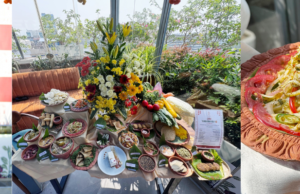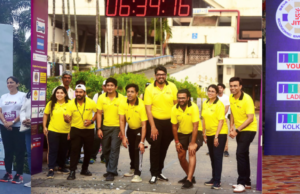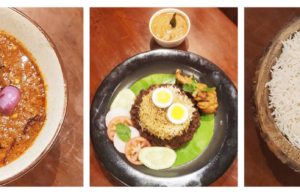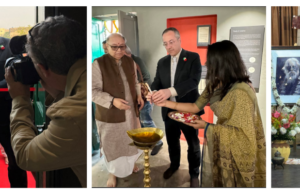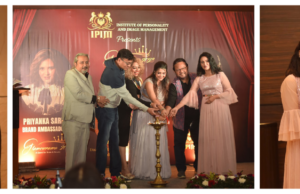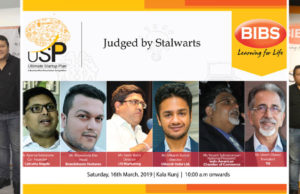
WoT's Hot
Artistes: Dhanashree Pandit Rai, Rimpa Siva, Rupashree Bhattachrya & Sanjukta Wagh.
Women’s Day came in a bit early to Kolkata, with More Saiyaan: Song of the Courtesan, a semi- classical vocal recital of thumris, dadras and even ghazals, by the acclaimed Dhanashree Pandit-Rai, presented by Kala Sangam, Bombay. The all women’s ensemble comprised of talented artistes: Rupashree Bhattacharya, a regular face on the harmonium from Kolkata, Rimpa Siva, the 30 year old, delightful tabla player and danseuse Sanjukta Wagh who brought out the nuances through Kathak.
Dhanashree, ably-supported by Sanjukta, made the two-hour show an interactive and engaging one. They explained and indeed traced a courtesan’s journey, right from her Kotha days where she would begin her innings to the coming in of the British, resulting in unfortunate ebb in her fate. Finally of course, the courtesan’s journey, that was steeped in rigorous training in Indian classical music and arts and at its peak, commanded great fan following of the nawabs, seths and royalty ended ingloriously with most of them being thoroughly ripped-of all grandeur and fading away.
Trained under the legends Shobha Gurtu and later Begum Afroz Bano, Dhanashree regaled the audience with both popular as well as lesser-heard numbers, ranging from old dadras such as Teri kateeli nigahon ne maara, to songs celebrating the rains; Kaare baadal ghir rahe to the ever popular Hamari Atariya pe aaja re sawariya. Her rich, warm voice, as well as her efforts to explain the lyrics and the context of the songs with her audience, makes her rendition special. On a request from the audience, Dhanashree performed a medley of Begum Akhtar’s ghazals, including Mere hamnafaz, mere hamnawa and Woh jo hum mein tum mein qarar tha. Sanjukta Wagh on her part emoted every nuance gracefully, bringing out the various bhavs or sentiments. The young and talented Rimpa Siva accompanied them both on the tabla. Dhanashree wrapped up her performance with a Bengali dadra based on Mishra Pilu and a popular composition by Kabir’s daughter, Kamali. The one thing however, that was missed sorely throughout the evening was the absence of the soulful and delicate strain of a sarangi that would have added immensely to the otherwise laudable performances.
Artistes: Dhanashree Pandit Rai, Rimpa Siva, Rupashree Bhattachrya & Sanjukta Wagh.
Women’s Day came in a bit early to Kolkata, with More Saiyaan: Song of the Courtesan, a semi- classical vocal recital of thumris
Other Articles in REAR WINDOW WOT
What to read next
Featured articles

Welcome Festive Season in Glam, Latin Quarters Launches new #PujoBling Collection with Monami Ghosh
by WOT




